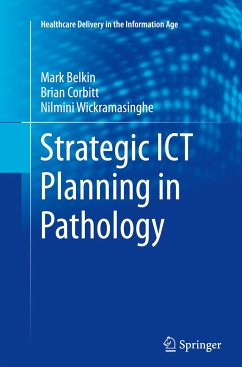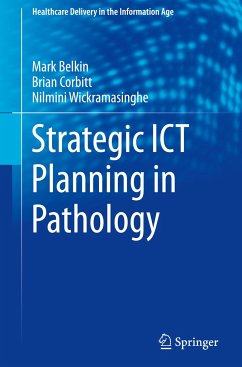
Critical Issues for the Development of Sustainable E-health Solutions
Versandkostenfrei!
Versandfertig in 6-10 Tagen
151,99 €
inkl. MwSt.

PAYBACK Punkte
76 °P sammeln!
Pervasive healthcare is an emerging research discipline, focusing on the development and application of pervasive and ubiquitous computing technology for healthcare and wellness. Pervasive healthcare seeks to respond to a variety of pressures on healthcare systems, including the increased incidence of life-style related and chronic diseases, emerging consumerism in healthcare, need for empowering patients and relatives for self-care and management of their health, and need to provide seamless access for healthcare services, independent of time and place. Pervasive healthcare may be defined fro...
Pervasive healthcare is an emerging research discipline, focusing on the development and application of pervasive and ubiquitous computing technology for healthcare and wellness. Pervasive healthcare seeks to respond to a variety of pressures on healthcare systems, including the increased incidence of life-style related and chronic diseases, emerging consumerism in healthcare, need for empowering patients and relatives for self-care and management of their health, and need to provide seamless access for healthcare services, independent of time and place. Pervasive healthcare may be defined from two perspectives. First, it is the development and application of pervasive computing (or ubiquitous computing, ambient intelligence) technologies for healthcare, health and wellness management. Second, it seeks to make healthcare available to anyone, anytime, and anywhere by removing locational, time and other restraints while increasing both the coverage and quality of healthcare. This book proposes to define the emerging area of pervasive health and introduce key management principles, most especially knowledge management, its tools, techniques and technologies. In addition, the book takes a socio-technical, patient-centric approach which serves to emphasize the importance of a key triumvirate in healthcare management namely, the focus on people, process and technology. Last but not least the book discusses in detail a specific example of pervasive health, namely the potential use of a wireless technology solution in the monitoring of diabetic patients.















